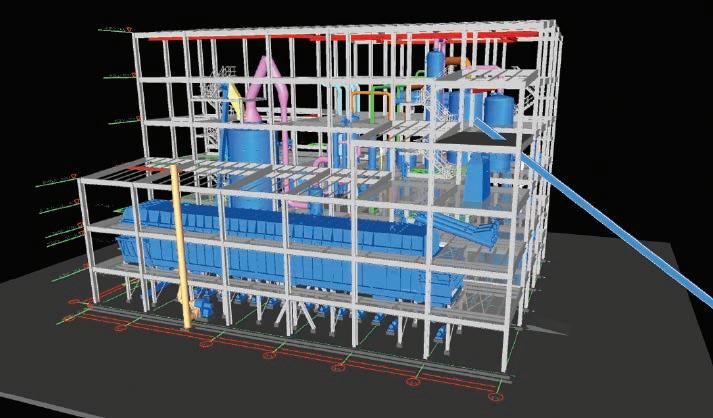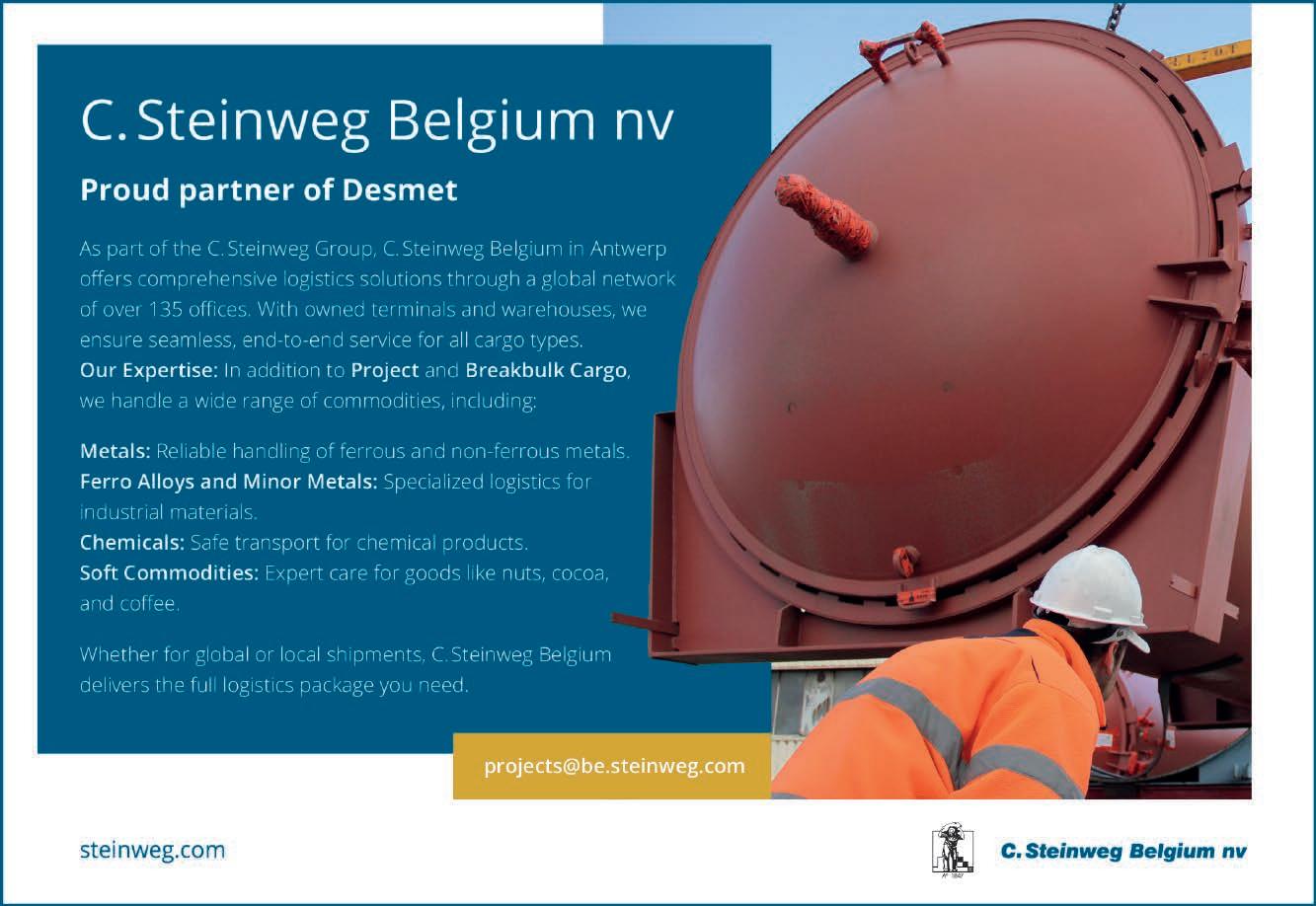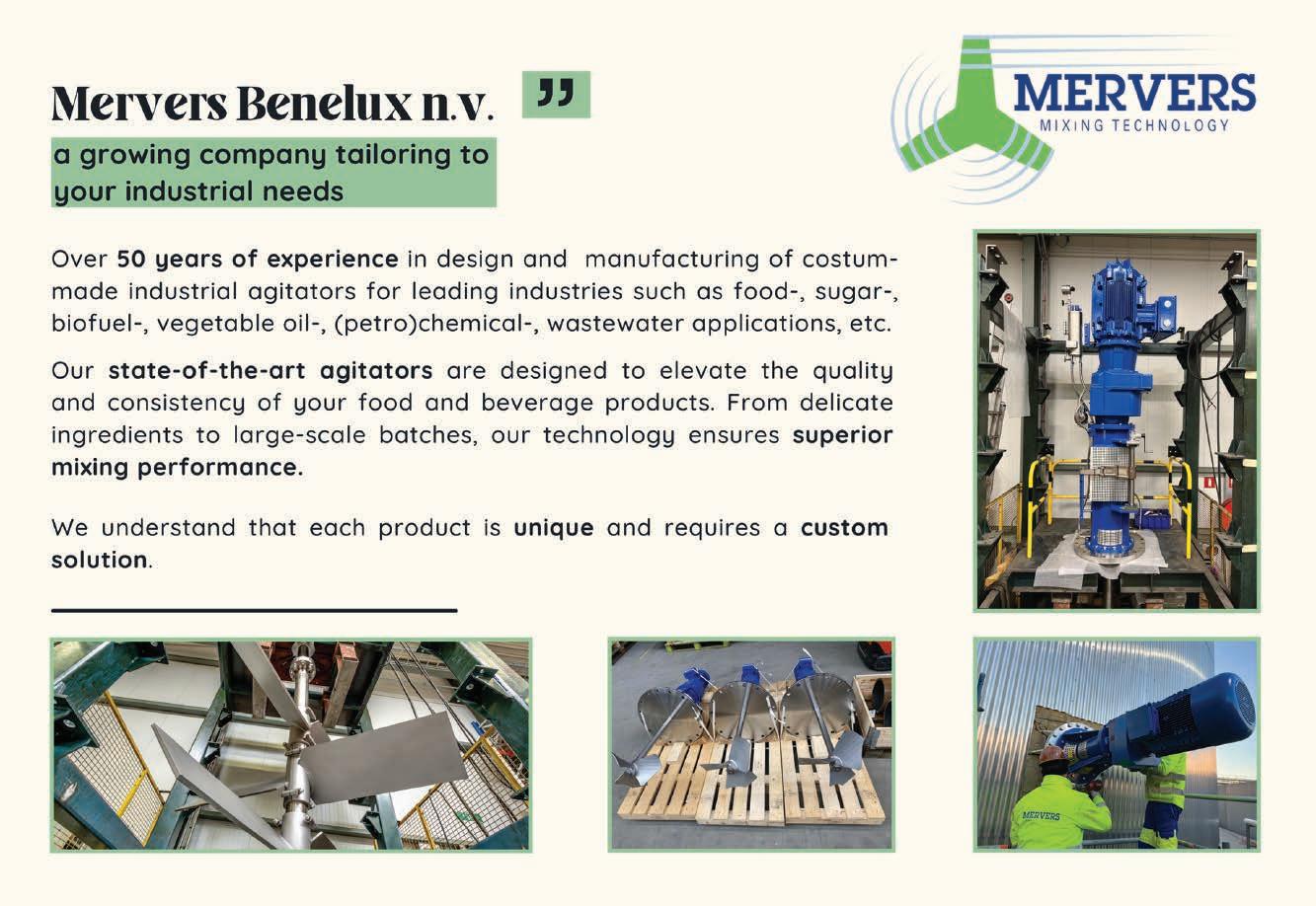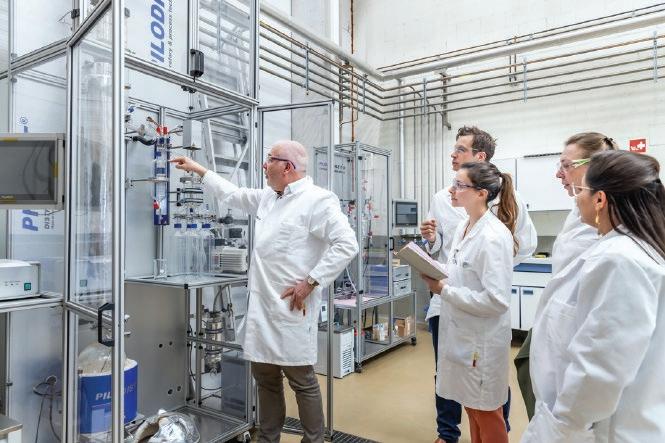







Desmet is a global solutions provider for the food, feed and biofuel industries – with more than 75 years’ experience backing it. Having already expanded its reach extensively, the company is now focused on innovating the production process of soy protein concentrate. Sales Director Maxime de Ville, Global Marketing & Communications Ksenia Oreshkova and Group Technology Support – Crushing David De Schaetzen explained more, during an in-depth interview with Inside Food & Drink. Report by Imogen Ward.

Custom-engineered plants and designing reliable process equipment are the bread and butter of Belgiumbased Desmet. With an annual turnover that exceeds €450 million, 70 plus patents and more than 25,000 successful projects (and counting), Desmet is now actively involve in protein processing.
“We first began investigating Soy Protein Concentrate (SPC) in the early 2000s, but it wasn’t until 2008 that we really began to optimise our process at our Innovation Center in Belgium,” said Sales Director Maxime de Ville. “It’s a market that is increasing in popularity and one that could have a major positive impact on the meat sector and aquaculture.”
Desmet was established in 1946 with the goal of enabling quality food, feed and biofuel production. Since then, the company has continued to develop and innovate across all three segments.
“Over the years, we have developed our technology portfolio always focusing on processing oilseed, vegetable oils, animal by-product and waste oil,” explained Mr de Ville. “In parallel, we have expanded geographically, to be always close to our customers.”
Desmet has opened offices around the world including South America, Malaysia,


US, India and China. In total, the company now has 15 offices under its full ownership –employing more than 1,000 people.
“Our next priority market will be Africa, where we already have a partial presence in the Northern region,” added Global Marketing & Communications Ksenia Oreshkova.
Today, the company serves more than 150 countries, with exclusive focus on the oilseed, oils and fats industry.




For 25 years, BUCHI has met market needs with high-quality NIR solutions, including NIR-Online sensors, at-line and lab benchtop systems - delivering enhanced efficiency and profitability through a comprehensive, reliable portfolio.


Having spent the last two decades adapting, developing and optimising technology capable of producing SPC, Desmet was first inspired to diversify into the segment because of a global movement.
Desmet strongly believes in the future of SPC thanks to its high credentials in sustainability and innovation.
“SPC can be used for human consumption as a substitute for meat protein,” explained Mr de Ville. “Additionally, and perhaps more importantly, it is great for the feed sector, providing food for livestock, poultry, aquaculture or pets.
“All SPC applications have their own challenges and growth characteristics, but as a technology provider, we must help our customers to solve the equation of production cost, nutritional value and functional properties.”
Aquafeed is the largest consumer and there is a need for more sustainable fishing practices. The aquaculture sector faces various significant issues: overfishing, habitat destruction and climate change. Desmet believes that SPC production is one potential solution can help make farming fish more effective in these restricted conditions. Obviously, this would have to be done properly, with a strong consideration for the sourcing of the soybean and using efficient technology
“Producing SPC requires a process that is inherently sustainable,” said Mr de Ville. “And it is one that the government should be supporting and incentivising due to its economic viability. This would

also help to encourage continuous innovation and further development within the field.”
Machine reliability and continuous operation remain challenging within the alternative protein segment. Process of Protein Concentrate is based on extraction of soluble components (like soluble sugar). Protein and sugar are components that can potentially become sticky and generate glue-like substance that can cause blockages and call a halt to the entire operation.
The resulting impact on operating costs and protein yields is a negative one. Desmet’s process has been developed and fully designed to overcome these challenges


and provide consistency in production and investment returns. Currently, Desmet has obtained two patents in this area.
“The most important patent we have obtained, was granted last year for our LM Pro extractor,” explained Group Technology Support – Crushing David De Schaetzen.
“The company developed the extractor back in 1946, but we realised more recently that this extractor can be perfectly dedicated to SPC production. Equipped with an optimum cleaning device, this extractor can operate with a clean screen and ensure a continuous annual operation.”
At the end of this extraction process, a final wash – with more concentrated solvent in Ethanol – reduces the retention (solvent liquid) to be evaporated in the desolventising process. This method eliminates the use of dewatering press commonly used in the industry today.
Evaporation and concentration of the molasse (extracted soluble sugar) is also a challenge in the distillation process. Desmet evaporators have been designed to minimise accumulation and caramelisation of soluble sugar on the heated tubes of these evaporators.
Desmet’s continuous process leads to better control of the operation and therefore the quality of the final SPC produce.

Excitingly, Desmet’s optimised methodology is useful to multiple markets. Not only is SPC utilised for the food sector (human consumption), but it can also be a great source of protein for the feed sector, mainly the aquafeed industry.
“The main difference between the processes for the two sectors is the denaturation of the protein,” added Mr De Schaetzen. “There is a significant difference in both the quality, quantity, taste and look of the two different products.”
The feed industry prioritises protein quantity over quality, whereas the human food industry requires the protein to be high in both factors.
For the food sector, natural protein properties are important. For example: water absorption, emulsifying capacity or capacity to obtain the right texture





for the plant-based meat alternatives. It basically means that during desolventising process, Desmet avoids the denaturation of protein as a result of excessive thermal process.
The replacement of animal protein with a vegetable alternative – especially within the feed industry – is incredibly important, as it can lead to the production of meat or fish with a larger portion of protein, while also helping to mitigate any remaining scarcity.
“Meat will remain an important part of the worldwide food industry, but more and more, it will be meat from an animal that was fed on high-quality vegetable protein,” added Mr De Schaetzen. “We could see this becoming a hot commodity in the future because it is providing an alternative for a protein that is already scarce.”
Of course, Desmet would not be able to continuously develop and improve its processes without the support of its supply chain.

“We are not an equipment supplier here at Desmet, and so we are reliant on our key suppliers to manufacture Desmet-designed equipment and supply reliable components to build our plants,” said Mr de Ville. “We have developed key partnerships with around 20 workshops located around the globe. All these partners are pivotal to our success, and they consistently afford us a reliable and quality-driven service.”
As it looks to the future, Desmet intends to continue working with these companies whilst it grows its presence worldwide. n

